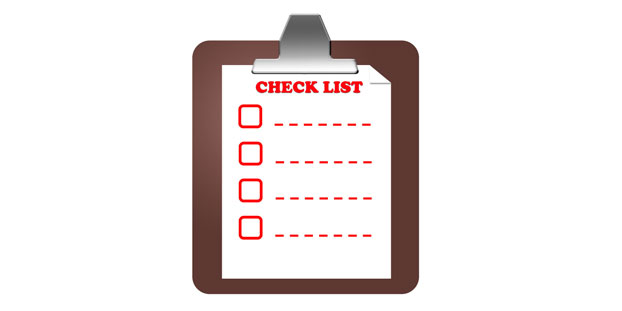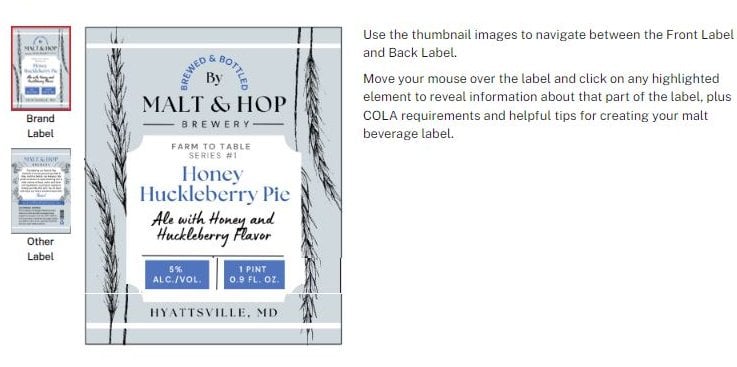
The Alcohol and Tobacco Tax and Trade Bureau just issued an interim rule to raise the civil penalties for violating the Alcoholic Beverage Labeling Act.
Specifically, this interim final rule increases the maximum civil monetary penalty for violations of the provisions of the ABLA from $10,000 to $19,787, in accordance with Federal law, effective July 1, 2016. Comments on this interim final rule must be received by August 30, 2016. Here is where you can send comments (the online comment form for this document as posted within Docket No. TTB–2016–0006).
Why is this happening? Inflation. Penalties are required to be updated with the changing times. If that’s a good enough answer for you, feel free to move on and read something more fun. For those of you who’d just love to read through the history of this move in a thicket of bureaucratic mumbo jumbo, here ya go:
Alcoholic Beverage Labeling Act
The Alcohol and Tobacco Tax and Trade Bureau (TTB) administers the Federal Alcohol Administration Act (FAA Act) pursuant to section 1111(d) of the Homeland Security Act of 2002, codified at 6 U.S.C. 531(d). The Secretary has delegated various authorities through Treasury Department Order 120–01, dated December 10, 2013, (superseding Treasury Department Order 120–01, dated January 24, 2003), to the TTB Administrator to perform the functions and duties in the administration and enforcement of this law.
The FAA Act contains the Alcoholic Beverage Labeling Act (ABLA) of 1988, Public Law 100–690, 27 U.S.C. 213– 219a, which was enacted on November 18, 1988. Section 204 of the ABLA, codified in 27 U.S.C. 215, requires that a health warning statement appear on the labels of all containers of alcoholic beverages manufactured, imported, or bottled for sale or distribution in the United States, as well as on containers of alcoholic beverages that are manufactured, imported, bottled, or labeled for sale, distribution, or shipment to members or units of the U.S. Armed Forces, including those located outside the United States. The health warning statement requirement applies to containers of alcoholic beverages manufactured, imported, or bottled for sale or distribution in the United States on or after November 18, 1989.
The statement reads as follows:
GOVERNMENT WARNING: (1) According to the Surgeon General, women should not drink alcoholic beverages during pregnancy because of the risk of birth defects. (2) Consumption of alcoholic beverages impairs your ability to drive a car or operate machinery, and may cause health problems.
Section 204 of the ABLA also specifies that the Secretary of the Treasury shall have the power to ensure the enforcement of the provisions of the ABLA and issue regulations to carry out them out. In addition, section 207 of the ABLA, codified in 27 U.S.C. 218, provides that any person who violates the provisions of the ABLA is subject to a civil penalty of not more than $10,000, with each day constituting a separate offense.
Most of the civil monetary penalties administered by TTB are imposed by the Internal Revenue Code of 1986, and thus are not subject to the inflation adjustment mandated by the Inflation Adjustment Act. The only civil monetary penalty enforced by TTB that is subject to the inflation adjustment is the penalty imposed by the ABLA at 27 U.S.C. 218.
Background of Statutory Authority for Federal Civil Monetary Penalty Inflation Adjustments
The Federal Civil Penalties Inflation Adjustment Act of 1990 (the Inflation Adjustment Act), Public Law 101–410, 104 Stat. 890, 28 U.S.C. 2461 note, requires the regular adjustment and evaluation of civil monetary penalties to maintain their deterrent effect and helps to ensure that penalty amounts imposed by the Federal Government are properly accounted for and collected.
A ‘‘civil monetary penalty’’ is defined in the Inflation Adjustment Act as any penalty, fine, or other such sanction that is: (1) For a specific monetary amount as provided by Federal law, or has a maximum amount provided for by Federal law; (2) assessed or enforced by an agency pursuant to Federal law; and (3) assessed or enforced pursuant to an administrative proceeding or a civil action in the Federal courts.
The Debt Collection Improvement Act of 1996 (the Improvement Act of 1996), Public Law 104–134, section 31001(s), 110 Stat. 1321, enacted on April 26, 1996, amended the Inflation Adjustment Act by requiring civil monetary penalties to be adjusted for inflation. Specifically, the Improvement Act of 1996 required, among other things, that the head of each Federal agency adjust each civil monetary penalty provided by law within the jurisdiction of the respective agency by the inflation adjustment described under section 5 of the Inflation Adjustment Act. The Improvement Act of 1996 required the adjustment of the civil monetary penalty to be done by regulation and published in the Federal Register.
Under the Improvement Act of 1996, any increase in a civil monetary penalty made pursuant to the amendment applied only to violations which occur after the date the increase takes effect. The act also provided that the first adjustment of a penalty made pursuant to the amendment may not exceed 10 percent of such penalty.
The Inflation Adjustment Act has been further amended by the Federal Civil Penalties Inflation Adjustment Act Improvements Act of 2015 (the Improvements Act of 2015), Public Law 114–74, section 701, 129 Stat. 584, enacted on November 2, 2015. The Improvements Act of 2015 changed the method agencies use to calculate inflation adjustments to civil monetary penalties, as well as the method and frequency of future adjustments. The Improvements Act of 2015 also instructed agencies to apply its method of calculating the inflation adjustment to the original statutory penalty, rather than to penalties as they were adjusted under the Improvement Act of 1996. To account for inflation that took place between the enactment of the original penalties and the enactment of the Improvements Act of 2015, agencies must make a ‘‘catch-up’’ first adjustment through an interim final rulemaking that is published no later than July 1, 2016, and takes effect no later than August 1, 2016. Agencies shall adjust civil monetary penalties no later than January 15 of every year thereafter. The Improvements Act of 2015 also provides that any increase in a civil monetary penalty shall apply only to civil monetary penalties, including those whose associated violation predated such an increase, which are assessed after the date the increase takes effect.
As amended, the Inflation Adjustment Act provides that the inflation adjustment does not apply to civil monetary penalties under the Internal Revenue Code of 1986 or the Tariff Act of 1930.






RT @CraftBrewingBiz: TTB to raise civil penalties for violating Alcoholic Beverage Labeling Act https://t.co/uPClWkJiIK
TTB to raise civil penalties for violating Alcoholic Beverage Labeling Act https://t.co/zafkdBPV3s
TTB to raise civil penalties for violating Alcoholic Beverage Labeling Act https://t.co/4ACELvVjS8 via @craftbrewingbiz
Beargrylls Sum liked this on Facebook.
Beall Brewery Insurance liked this on Facebook.
TTB to raise civil penalties for violating Alcoholic Beverage Labeling Act https://t.co/QqmnbVAQbd